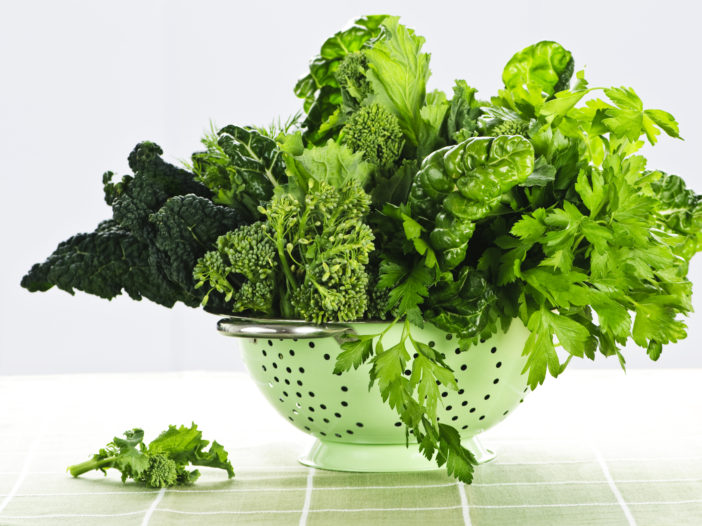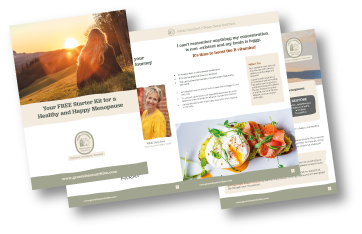
Getting the right nutrients into your diet is super important. But it is actually quite surprising how many people are deficient in certain key nutrients. And the problem tends to be more pronounced as you transition through the menopause. Without a doubt the menopause puts an additional strain and demands on your body. Therefore, it is worth reminding yourself this: Your nutritional needs will change as you age and eating a healthy diet becomes even more important. What you got away with in your twenties and thirties is no longer going to work.
And there are a number if reasons for this:
Let’s take a look at some of the more common deficiencies and the reasons why:
Vitamin D and calcium
These two nutrients work hand in hand. Calcium is required for healthy bones and vitamin D helps your body to absorb the calcium. This is super important in your menopause years as the risk of osteoporosis increases in line with your reduction of oestrogen. Vitamin D is made from cholesterol in your skin when you are exposed to sunlight. But your skin becomes thinner as you get older and this process becomes more difficult. And without enough vitamin D, your risk of bone fractures increases.
It is therefore important to get enough calcium from your diet. One of the best sources are dark green leafy vegetables. Sardines with all their tiny bones are another great option. And do ensure that you supplement with a good quality Vitamin D particularly during the winter months.
Vitamin B12
Vitamin B12 is required for brain function and energy production. And studies have shown that up to 30% of people over 50 find it a difficult vitamin to absorb. To benefit from this vitamin, it has to be separated out from the protein which is bound to. This process is carried out by acid in your stomach. But many older people do not produce enough acid or have problems with absorption.
Vitamin B12 is found in eggs, fish, meat and dairy. It is therefore likely that you may also be deficient if you follow a vegetarian or vegan diet.
Magnesium
Magnesium is a super important mineral and one that most of us do not get enough of. If you are experiencing symptoms such as anxiety, headaches, fatigue, mood swings, palpitations and poor sleep, you may want to get your magnesium levels checked.
And that’s because magnesium has an important role in hormone function:
Magnesium helps to calm your nervous system and reduce stress. It supports your metabolism as it required for thyroid hormone production. Magnesium is required for energy production and helps your muscles to relax and improve sleep quality. It also regulates your blood sugars and is involved in the production of your sex hormones.
Good sources of magnesium include dark chocolate, avocados, green vegetables, nuts, legumes, whole grains, meat, fatty fish and bananas.
Essential fatty acids
Essential fatty acids are essential for your health, but many people are not getting enough of them. Your body cannot produce them, so you must get them from your diet. One of the main reasons is people’s fear of fat. Often, women currently in the “peri and menopause generation” are still of the belief that fat is bad and continue to follow fat free diets. This is so wrong. Initial signals which indicate a deficiency of EFA can be dry skin, lifeless hair, depression, insomnia, achy joints, difficulty losing weight and forgetfulness. If left uncorrected, it can lead to more serious conditions such as heart disease, cancer and arthritis.
Essential fatty acids come in three forms – omega 3, 6 and 9. Omega 3 is the most important as it has an anti -inflammatory role in the body and supports bone density. But sadly, it is omega 3 which is likely to be the most lacking in a modern diet.
It can help with so many menopause symptoms, so it’s worth the effort of increasing omega 3 in your diet. Good sources include oily fish, seeds such as flax, chia, pumpkin, sesame and sunflower and nuts such as almonds, brazil and walnuts as well as eggs and spinach.
They really are a super nutrient when it comes to menopause symptoms. And research has shown that they have a positive impact on energy levels, achy and stiff joints, metabolism, dry skin, weight loss and hot flushes.
If you struggle to eat 3 to 4 portions of oily fish a week, this is another one to consider supplementing. But do take advice as quality and quantity of active ingredients in a fish oil can vary significantly from brand to brand.
Do you feel that you need some further support?
If you suspect that you may be lacking certain vitamins and minerals, it is easy to get some testing done. Deficiencies are actually more common that you would think. And often getting them corrected can really help with some of the struggles you may be experiencing right now.
If you feel that now is the right time to get your health back on track, then do get in touch. I would love to help you on your menopause journey.

